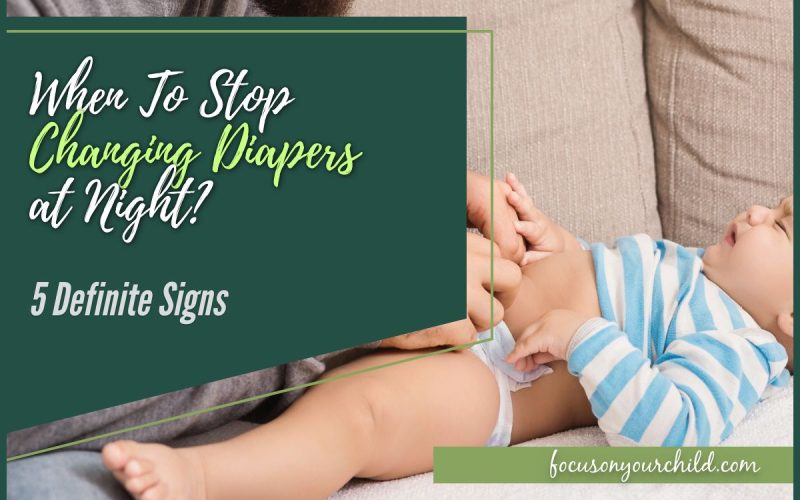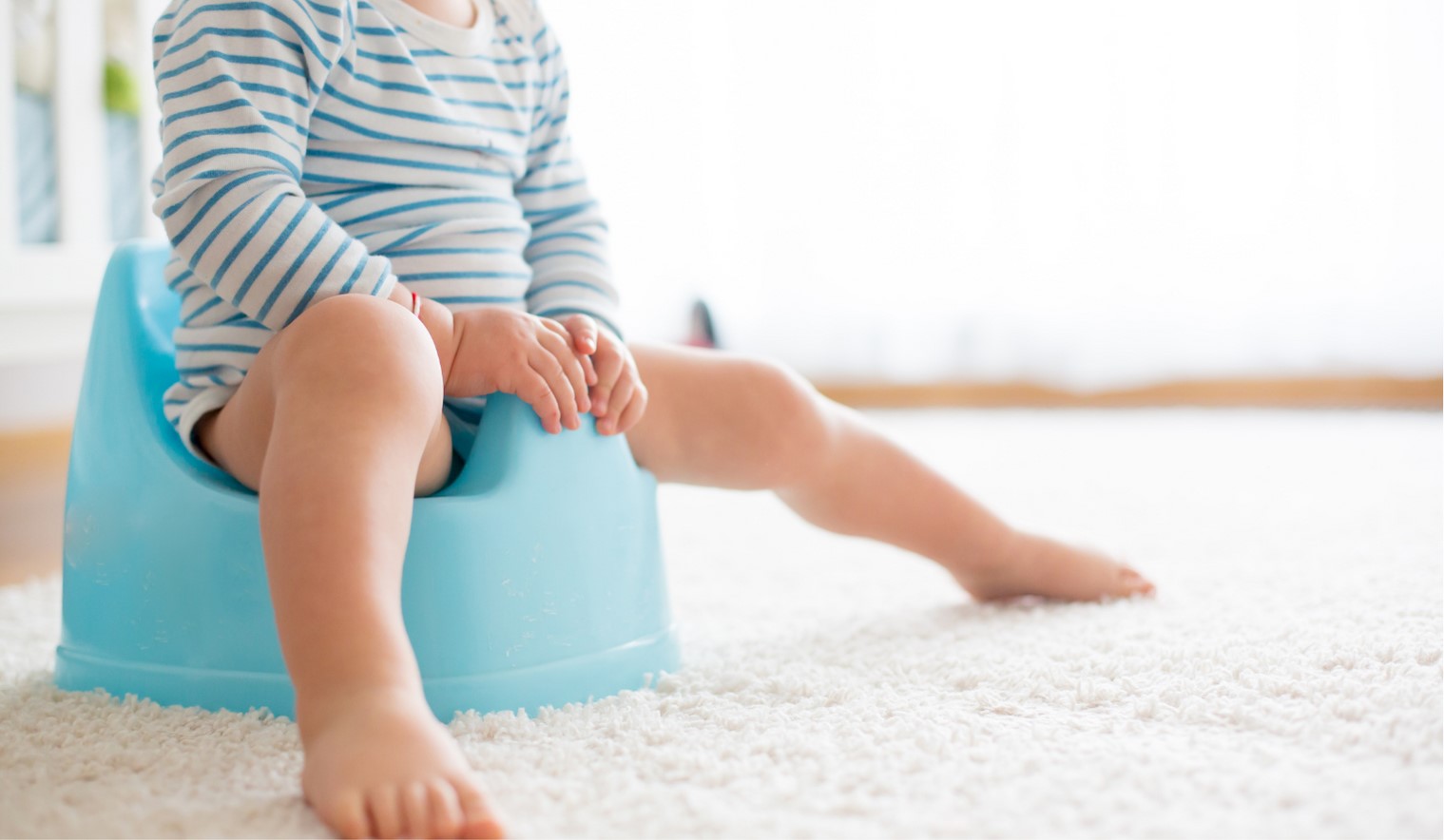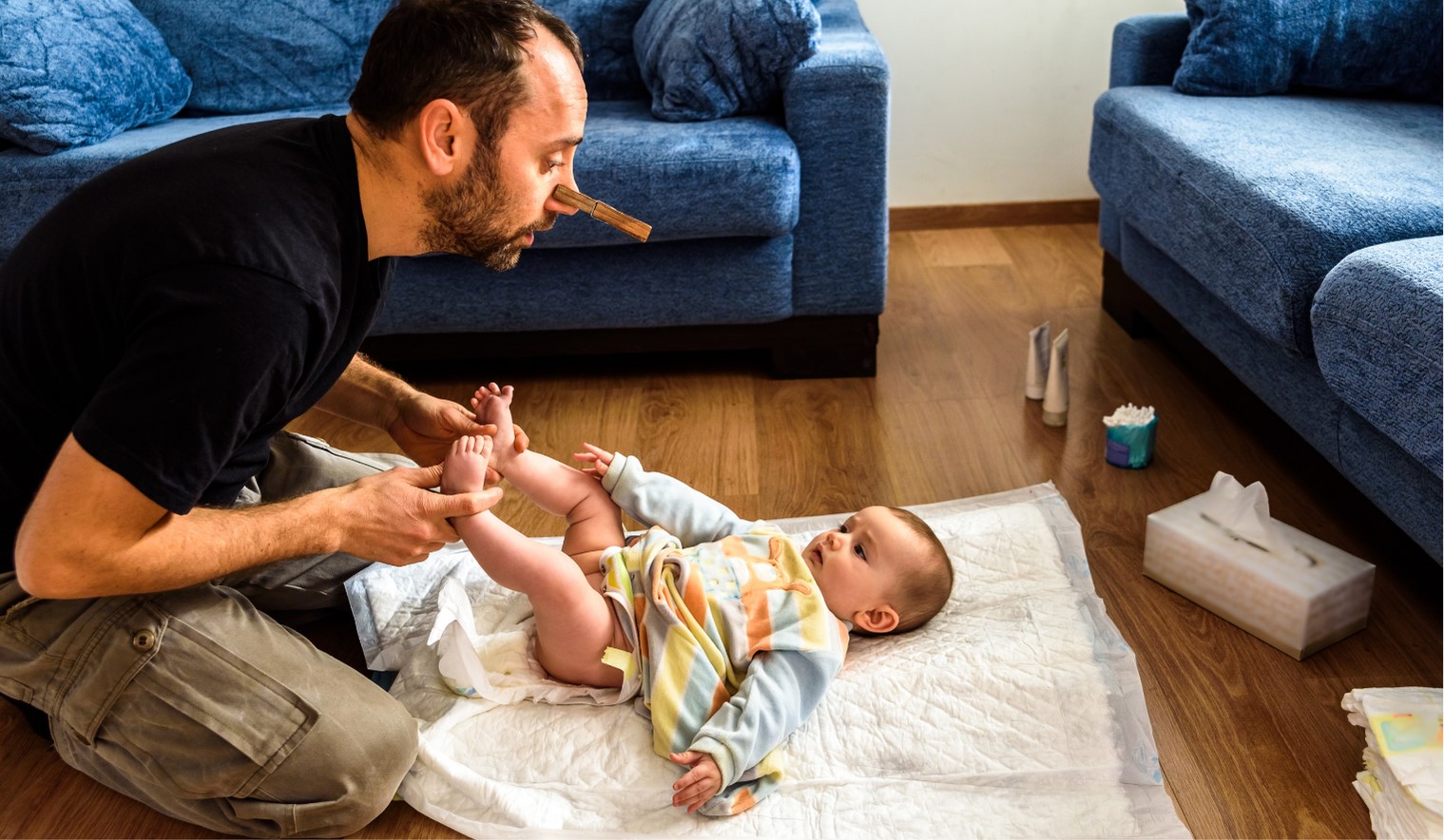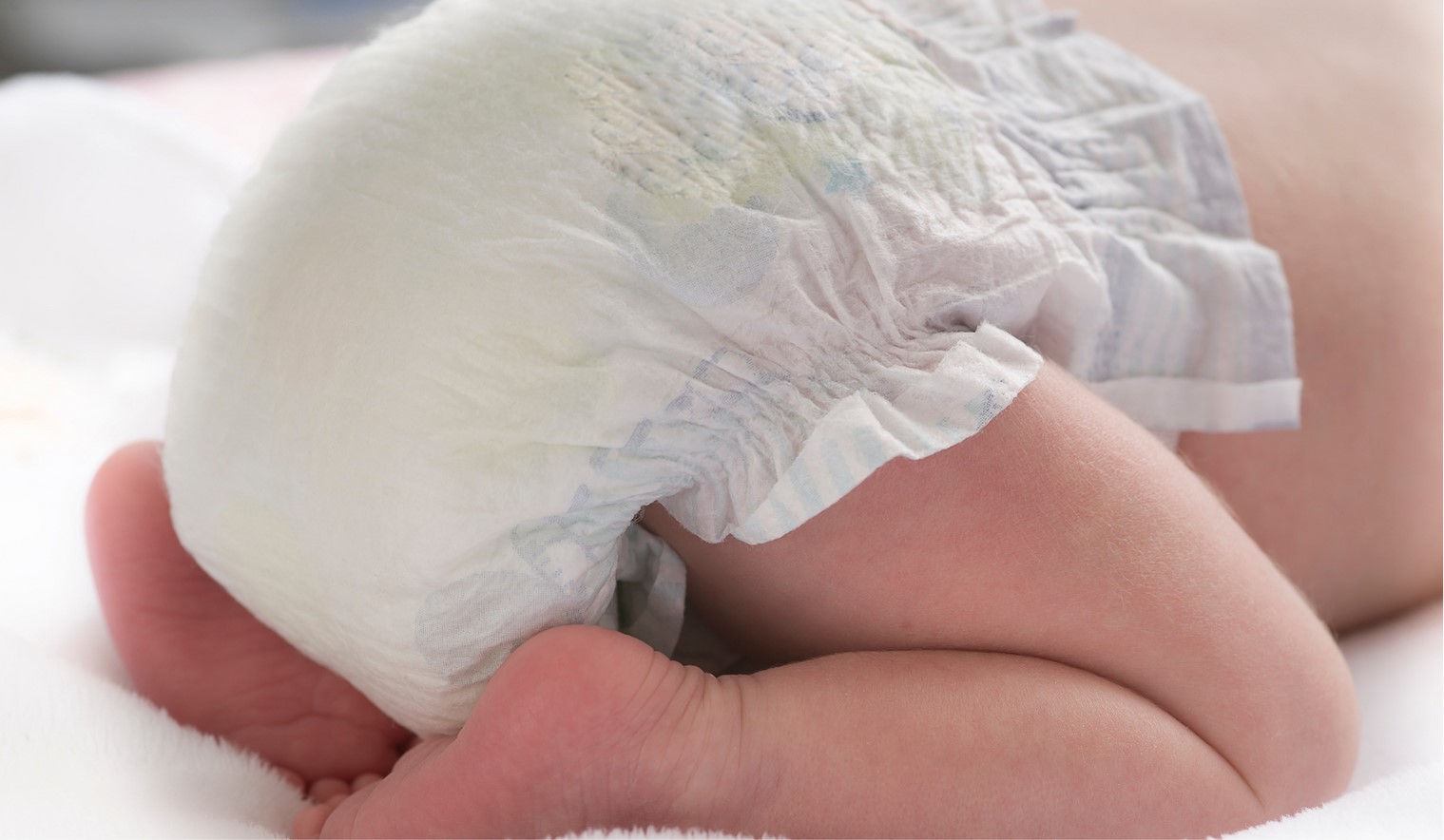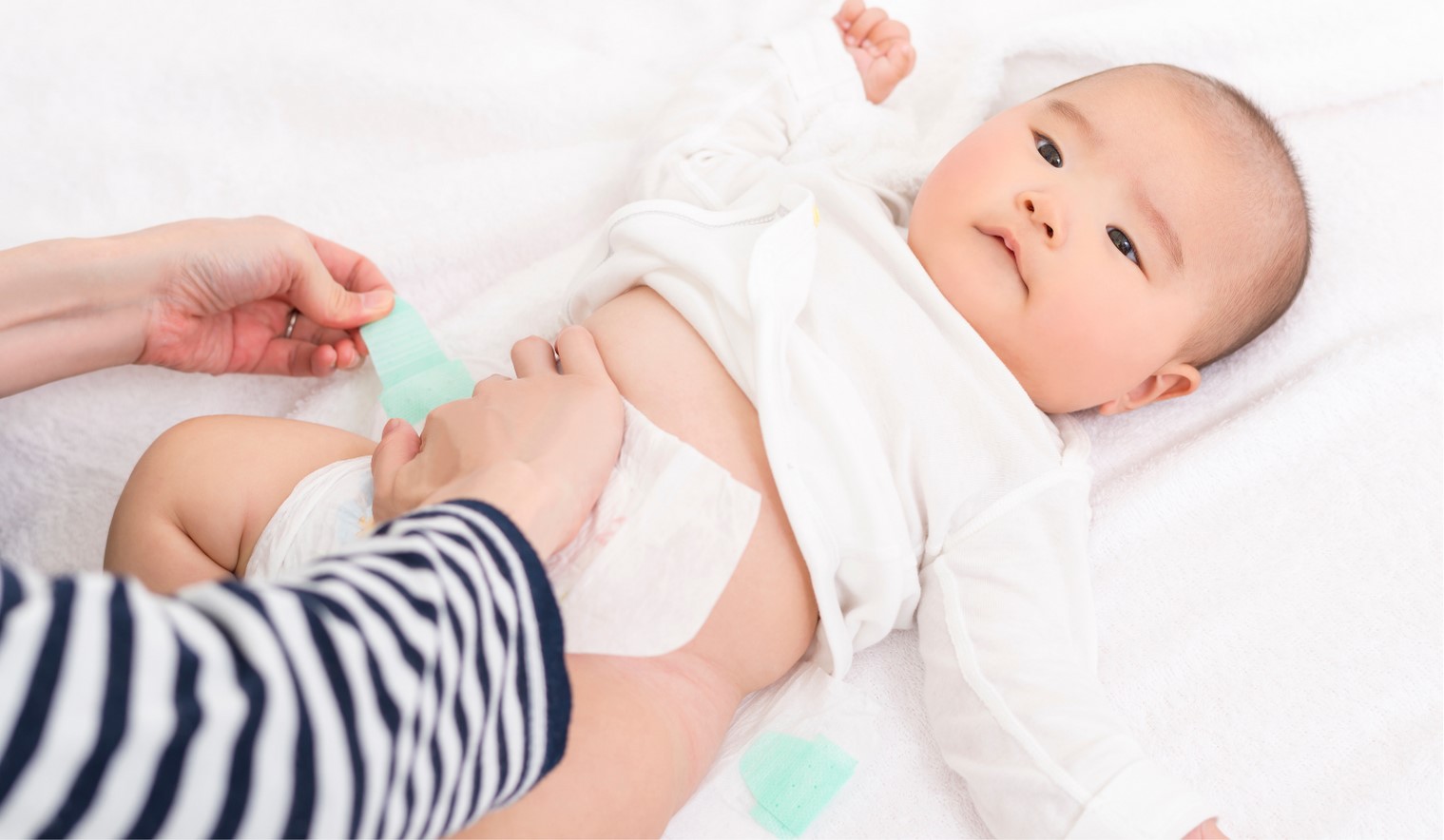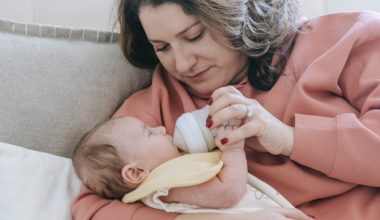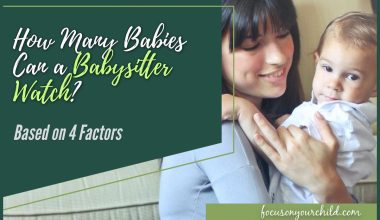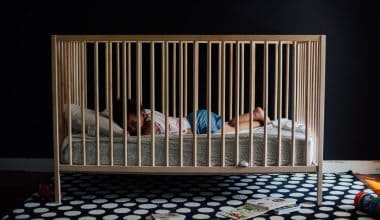Babies go through diapers extremely quickly, and new parents often feel like they are changing diapers constantly, day in and day out. Middle-of-the-night diaper changes are one of the few rather unexciting parts of parenting, and the day your child finally stops needing nighttime diaper changes may feel like a million years away.
Children will stop needing nighttime diaper changes at different ages. While some children may be able to go without overnight diaper changes as early as a month old, others may need them for longer. Usually, you can stop changing diapers overnight once your baby a.) stops pooping at night, and b.) no longer wakes up because they are wet and uncomfortable.
As your baby’s systems mature and learn to respond to day/night cycles, they will naturally stop needing diaper changes overnight. This article lists a few signs that you can stop changing diapers at night. If your baby can check off these signs, you should be on the right track to graduating from nighttime diaper changes.
Signs That You Can Stop Changing Diapers at Night
1. Your Baby Starts Sleeping for Longer Periods of Time Uninterrupted
A baby’s sleep cycle changes as they develop. Early on – especially when they’re newborns – babies wake up frequently to be nurtured, cuddled, and fed.
Infants don’t have a concept of day and night quite yet: instead, babies wake up when they need food or comfort, which can be as often as every 2-3 hours. Fortunately for most parents, this does improve with time. Some babies can sleep through the night as early as the three-month mark. Most babies should be capable of doing this by the six-month mark.
If your baby can sleep through that whole timeframe, you can stop changing their diapers at night. Of course, that’s only assuming every other factor below won’t be a concern!
2. You Have Successfully Potty Trained Your Child
Potty training can be a stressful and challenging time for both you and your child. Once it’s done however, you get to pretty much drop diapers all together, morning and night.
Most children are ready for potty training between 18 and 24 months. Signs that your child is ready for potty training may include:
- Being able to understand and follow basic instructions.
- Being able to keep a diaper dry for 2 hours.
- Staying dry at night and during naps.
- Communicating when they are about to go, or when they have just gone in their diaper.
- Being able to walk to and sit on a toilet for a few minutes.
- Showing signs or communicating an interest in “big-kid” underwear and using the toilet.
Nighttime potty training is a whole other thing separate from daytime potty training. Children who have mastered daytime dryness may still need diapers at night. It may also be better to hold off nighttime potty training until they have made the transitioned from crib to bed, to make it easier for them to use the bathroom at night without your help.
3. Your Baby Has Dropped Overnight Feeds
Newborns and young babies have tiny stomachs, and need to eat much more frequently in order to get the nutrition they need. Their gastrocolic reflex, which controls the movement of the lower digestive tract and colon following meals is also underdeveloped. As a result, most newborns have frequent bowel movements, sometimes after every single meal.
It is recommended that your baby gets a diaper change before or after every meal, as part of their feeding routine. Meaning if your baby feeds thrice at night, they get 3 diaper changes. If they feed just once, then you only need to give them one diaper change.
As your baby’s digestive tract continues do mature, they will eventually will be able to eat enough before bed to tide them over until morning, at which point you can reduce and wean off overnight feeds. Their diapers will not get as wet either once they drop overnight feeds.
4. Your Baby Stops Pooping at Night
It’s a given that poopy diapers need to be changed immediately in order to keep your baby safe from infections and infection causing germs. Newborn babies often poop after every feed, amounting to around 8 to 12 diapers a day, or 4 to 5 diapers a night.
Babies begin to poop less by their 6th to 8th week, as their digestive systems grow and become more mature. They are also less likely to poop at night as they develop circadian rhythms and become accustomed to day/night cycles.
There is no definite timeline for when your baby should stop pooping at night. Some babies may stop as early as 4 weeks, while others may still have nighttime poops at 9 months. As long as your baby is eating normally and their poops are of a normal consistency and color, there should be nothing to worry about.
Certain changes in routine may cause babies who have already stopped pooping at night may begin pooping at night again. Sleep training and starting solid foods may cause your baby’s bowel habits to change temporarily. In all likelihood, your baby’s bowels should return to normal in 2 to 3 weeks.
5. Their Diaper Doesn’t Get Very Wet
Newborn babies can pee as often as every 1 to 3 hours because they have tiny bladders that cannot hold much liquid. As your baby grows, their bladder capacity increases and their bodies begin to produce the anti-diuretic hormone (ADH) which controls the amount of urine produced by the kidneys and prevents urination while sleeping.
If you find that your baby’s diaper is relatively dry when you go to do your routine middle-of-the-night diaper change, you may consider putting the diaper change off until morning.
Some diaper brands have indicator strips which change color to provide a convenient way of checking diaper wetness. These colored strips are actually pH indicators which change color by responding to the pH levels in your baby’s urine. In pull-ups and training pants, these indicators are usually designs which fade away when wet, as a way of encouraging toddlers in potty training to stay dry.
6. Your Baby Doesn’t Wake Up Because of Wetness
Wet diapers, can be uncomfortable against your babies skin and cause them to wake up. The warm and moist conditions can also pose dermatological issues such as diaper rashes and yeast infections. Noticeably wet diapers should be changed as soon as possible to help your baby sleep comfortably and prevent irritation.
Diapers do not necessarily have to be changed after every pee though. If your baby isn’t waking up because they feel wet or uncomfortable and their diaper is still relatively dry, it should be fine to leave it on. If their diaper stays consistently drier for a few nights in a row, it is a sign that you can probably stop changing diapers at night.
7. Your Baby Isn’t Experiencing Diaper Rash
Diaper rashes are unpleasant for infants to experience, often disrupting their sleep schedules. If left unattended, it might even lead to further infections developing.
A baby’s vulnerability to diaper rashes varies between cases. Some babies can snooze through the night in a soiled nappy without being any worse for wear, while other infants might get painful rashes – or even blisters – after a few hours of contact with the irritant.
You can somewhat compensate for diaper rashes by changing your baby more frequently during the day, but identifying and removing the main causes should be your priority.
Look into the potential sources of this irritation – bath soap, diaper material, or even their wipes could be responsible for your baby’s condition. Go through each option meticulously to discern what needs to be changed to ensure their well-being.
Fortunately, a baby’s skin sensitivity does dampen over time. Once you notice that they no longer frequently develop diaper rashes, you’re fine to stop changing their diapers at night.
Some Tips When Stopping Diaper Changes at Night
Some mishaps are inevitable when dropping nighttime diaper changes, especially at first. Continue to check your baby’s diaper in case they need a change, especially in the first few nights.
Using a mattress protector and/or putting down an absorbent pad will help safeguard the mattress and crib sheets from any leaks. You may also want to use overnight diapers, which are more absorbent and made to be worn comfortably for longer hours.
Prolonging the amount of time your baby spends wearing a single diaper can aggravate diaper rash, especially for babies with sensitive skin. Applying a layer of diaper cream on your baby’s bottom should help reduce the risk of a rash popping up on your baby’s bottom. Pick a diaper cream with active ingredients such as zinc oxide and lanolin which create a barrier against moisture on the skin, as well as calendula and aloe vera which have soothing and anti-inflammatory effects.
If you are in the process of nighttime potty training, consider placing a training potty in their room at night. Using pull-ups or training pants may also help encourage and reinforce the concept of using a potty. A night light will also help keep them safe if they do get up to go at night.
Final Thoughts
Babies go through a ton of diapers, especially when they’re still young and constantly waking up throughout the day. Fortunately, it won’t be that way forever. You’ll notice a few signs pop up over time – signs that you can finally stop changing your baby’s diapers at night!
